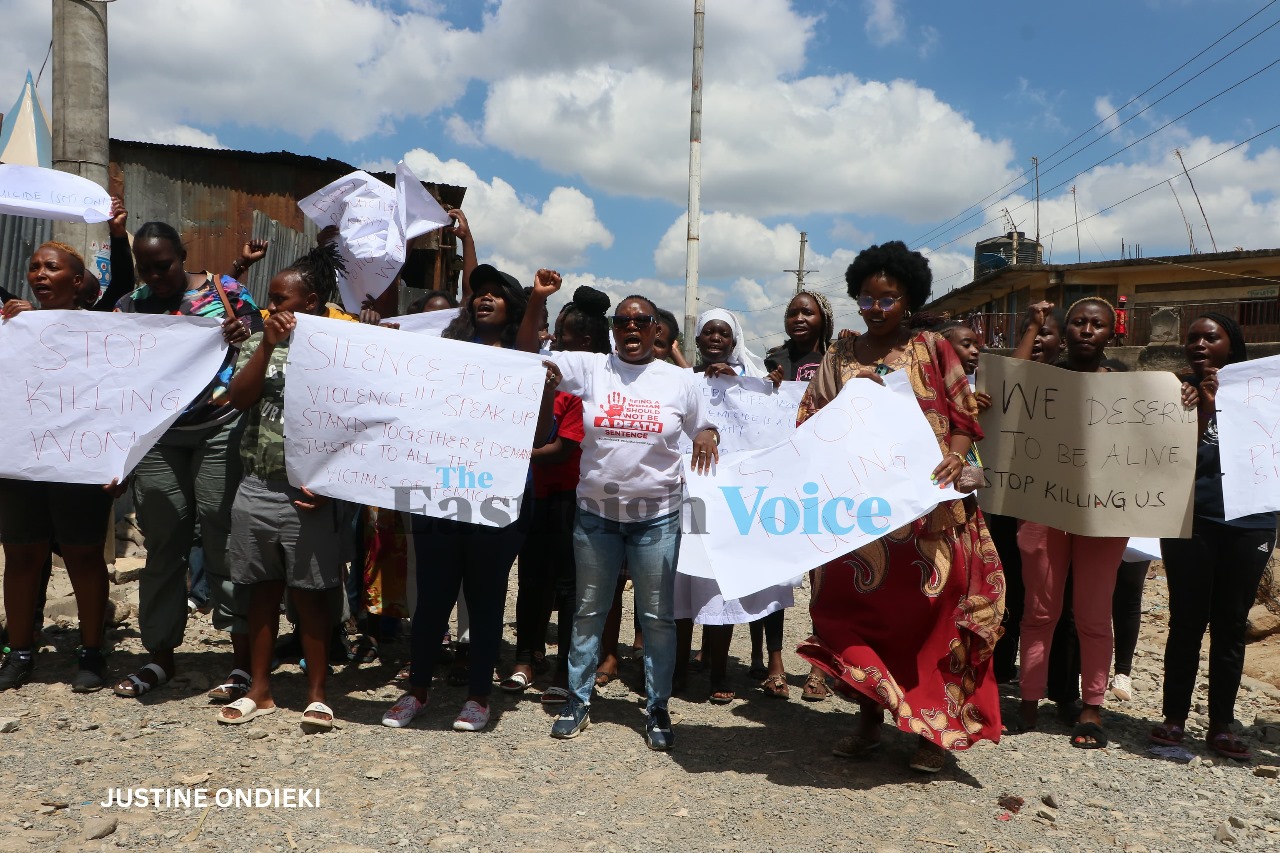Safe houses for GBV victims to be built in Nairobi amid rising femicide cases

Nairobi Governor Sakaja Johnson has announced that currently, one safe house, funded by the National Government Affirmative Action Fund (NGAAF), is already operational in Gigiri.
The Nairobi County government is in the process of constructing safe houses for victims of gender-based violence in response to the rising cases of femicide across the country.
Nairobi Governor Sakaja Johnson has announced that currently, one safe house, funded by the National Government Affirmative Action Fund (NGAAF), is already operational in Gigiri.
More To Read
- Sexual violence driving mass flight from Sudan to South Sudan: What you need to know
- 16 days of activism: Strengthening protection against gender-based violence
- Digital experts sound alarm as tech-facilitated GBV continues to target Kenyan women
- 16 days global campaign spotlights growing threat of gender-based violence
- Kenya outshines neighbours in media coverage of SGBV, femicide
- International Day of the Girl: UNICEF highlights increased risks for girls amid crisis
Sakaja said that his administration is developing a comprehensive plan to address the alarming increase in domestic violence cases.
“We are taking a stand to construct a safe house. If you are in a house and you are being abused, don’t stay there because tomorrow you will be murdered,” he said.
He spoke on Sunday at the 73rd anniversary of the African Divine Church in Nairobi, following a disturbing incident where remains belonging to a female victim were discovered at the entrance of Lang'ata Cemetery.
He called for collaboration in tackling the crisis, noting that his office is partnering with Woman Representative Esther Passaris to provide support for victims.
According to Sakaja, the initiative aims to help individuals escape unhealthy relationships and contribute to the broader national dialogue on combating the rising number of women who are murdered and mutilated.
“Recently, we discovered the bones of a female victim at Lang'ata Cemetery, and it is very disheartening. It is time for us to take a stand,” Sakaja said.
He also condemned the actions of those who perpetrate violence against women, urging society to shift focus away from blaming victims.
“Let us stop saying that we should advise our ladies on the kind of people that they should meet and avoid meeting. There is no justification for killing a female or anybody in the country,” he added.
 Nairobi Governor Johnson Sakaja chairing the 31st Cabinet meeting of the Nairobi City County Government at City Hall, Nairobi on August 20, 2024. (County Government)
Nairobi Governor Johnson Sakaja chairing the 31st Cabinet meeting of the Nairobi City County Government at City Hall, Nairobi on August 20, 2024. (County Government)
Plea to Executive
In addition to advocating for safe houses, Sakaja called on President William Ruto to enhance support in the fight against femicide.
He urged the president to deploy additional state resources to combat violence against women, emphasising the importance of empowering the police and improving surveillance operations.
“Your Excellency, you are here. The women of Nairobi are crying, the women of our country are crying. Let us give them security,” he said.
The governor's comments come in the wake of a troubling discovery that has sparked outrage countrywide, with many questioning the circumstances surrounding the victim's death.
Deputy Inspector General of Police Eliud Lagat reported that there have been a total of 97 femicide cases recorded in the past three months alone, highlighting the urgent need for action in addressing the grave issue.
Speaking on Sunday during a church service at African Divine Church in Nairobi, President Ruto pledged that the government would take all necessary measures to tackle the issue of femicide in the country. He said the government would allocate resources to the police to effectively address the trend.
“Our girls are being killed. The very people we should love and care for are losing their lives. How can we accept that our Kenyan women, who expect our protection, are dying at the hands of men?” he posed.
The President pointed out that the rise in femicide presents both a criminal and a moral challenge for the nation.
“We need to confront both aspects. As parents, including myself, we must address the moral dimension. We should not just assign blame; instead, we should reflect on what we can do, as it is harming our girls and our citizens,” he said.
Over the past three months, more than 90 women have lost their lives, although the Directorate of Criminal Investigations (DCI) asserts that the trend is not exclusively gender-based.
The police have however reassured the public of their dedication to thoroughly investigating femicide cases and called on society, government officials, and religious leaders to collaborate in efforts to end the violence.
Top Stories Today











































